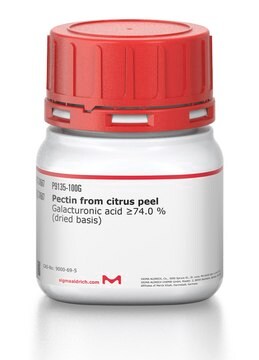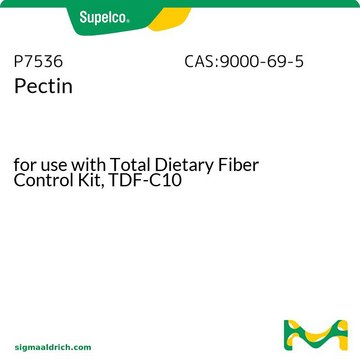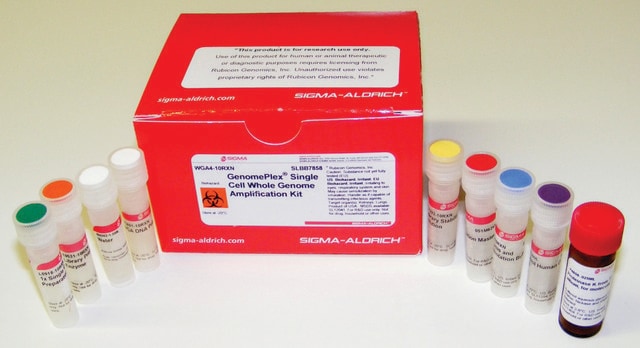P4300
Pectinase from Rhizopus sp.
suitable for plant cell culture, BioReagent, crude powder
Sinónimos:
Macerozyme R-10, Poly-(1,4-α-D-galacturonide) glycanohydrolase, Polygalacturonase
About This Item
Productos recomendados
Línea del producto
BioReagent
formulario
crude powder
actividad específica
400-800 units/g solid
técnicas
cell culture | plant: suitable
temp. de almacenamiento
−20°C
¿Está buscando productos similares? Visita Guía de comparación de productos
Descripción general
Aplicación
Definición de unidad
Palabra de señalización
Danger
Frases de peligro
Consejos de prudencia
Clasificaciones de peligro
Resp. Sens. 1
Código de clase de almacenamiento
11 - Combustible Solids
Clase de riesgo para el agua (WGK)
WGK 3
Punto de inflamabilidad (°F)
Not applicable
Punto de inflamabilidad (°C)
Not applicable
Equipo de protección personal
Eyeshields, Gloves, type N95 (US)
Certificados de análisis (COA)
Busque Certificados de análisis (COA) introduciendo el número de lote del producto. Los números de lote se encuentran en la etiqueta del producto después de las palabras «Lot» o «Batch»
¿Ya tiene este producto?
Encuentre la documentación para los productos que ha comprado recientemente en la Biblioteca de documentos.
Nuestro equipo de científicos tiene experiencia en todas las áreas de investigación: Ciencias de la vida, Ciencia de los materiales, Síntesis química, Cromatografía, Analítica y muchas otras.
Póngase en contacto con el Servicio técnico







